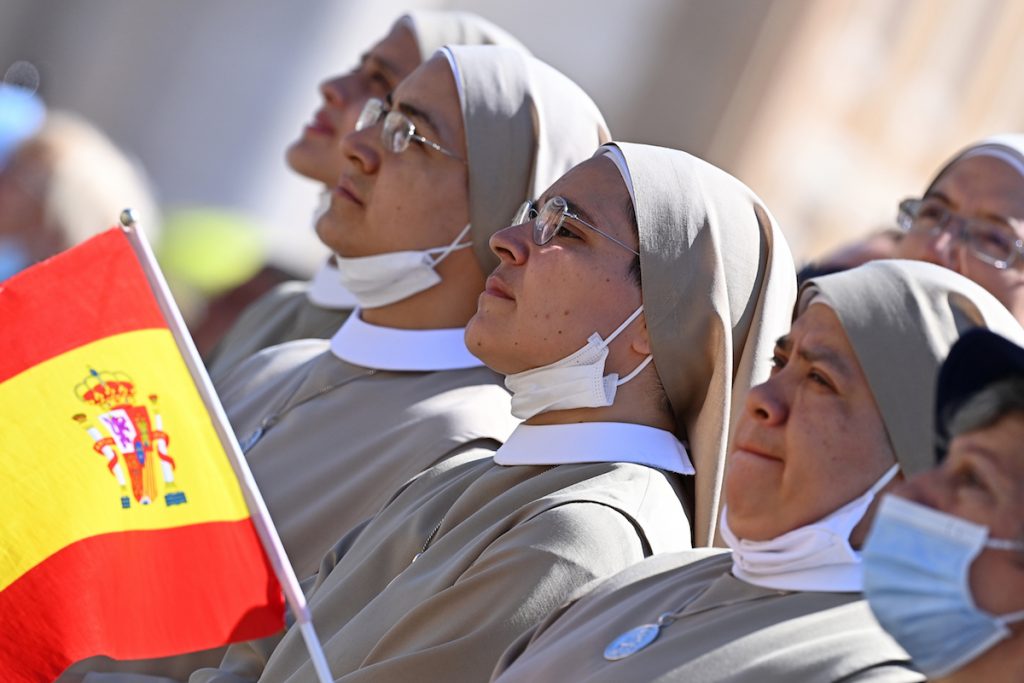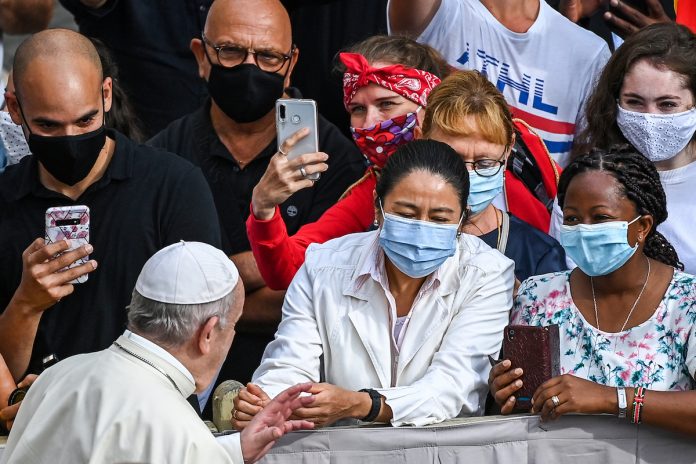Pope Francis called on Catholics to make an effort “not to gossip,” which he described as “a plague more awful” than the coronavirus disease.
During his Sunday Angelus prayer on Sept. 6, the pope noted that when people see someone commit a mistake “usually the first thing we do is to go and recount it to others, to gossip.”
The church leader said gossip “closes the heart” to the community and “closes off the unity” of the Church.
“The great gossiper is the devil, who always goes about telling bad things about others because he is the liar who seeks to separate the Church to distance brothers and sisters and not create a community,” said the pope.
Pope Francis appealed to the public “to embrace” those who refuse to make amends for their mistakes and “never gossip” if efforts to correct them fail.
He reflected on the Gospel passage that speaks about “fraternal correction.”
He said it invites the public to reflect on the “twofold dimension of Christian existence” — community that demands safeguarding communion — that is, the unity of the Church — and personal, which obliges attention and respect for every individual conscience.

Pope Francis said Jesus offers a three-phase approach — a pedagogy of rehabilitation — to correct someone who commits a mistake or a sin.
In the first step, Pope Francis said people must tell the person that he or she committed a mistake “with discretion” or “when the two of you are alone” and “do not air his sin in public.”
The pontiff said it will show “that we are not there to judge the person but to help him realize what he has done.”
“How many times have we had this experience; someone comes and tells us: ‘But listen, you were mistaken about this. You should change a little in this regard,’” he said.
“Perhaps, in the beginning, we get angry, but then we say, ‘thank you’, because it is a gesture of brotherhood, of communion, of help, of rehabilitation,” the pope added.
The pontiff, however, admitted that “it is not easy” to put into practice this teaching of Jesus, especially that “there is the fear that the brother or sister may react badly.”
If the first step fails, Pope Francis said we must not give up “but seek the support of some other brother or sister.”
“Jesus says: ‘If he does not listen, take one or two others along with you, that every word may be confirmed by the evidence of two or three witnesses,’” said the pope.
Pope Francis warned that “it may seem a disadvantage” to the accused, but in reality, “it will serve to protect him against false accusers.”
“This is the attitude of rehabilitation that Jesus wants from us. In fact, Jesus explains that even this approach — the second approach, with witnesses — may fail,” he said.

The last third approach, if the first two approaches fail, requires the involvement of the whole community – the Church.
In some situations, the entire community becomes involved.
“There are things that can have an impact on other brothers and sisters: It takes a greater love to rehabilitate the brother. But at times even this may not be enough,” said Pope Francis.
The pontiff said the teachings of Jesus invite Christians to embrace the sinners, even when the three approaches fail and the sinner “refuses to listen even to the Church.”
He said we must put the person in God’s hands, adding that “only the Father will be able to show greater love than that of all brothers and sisters put together.”









